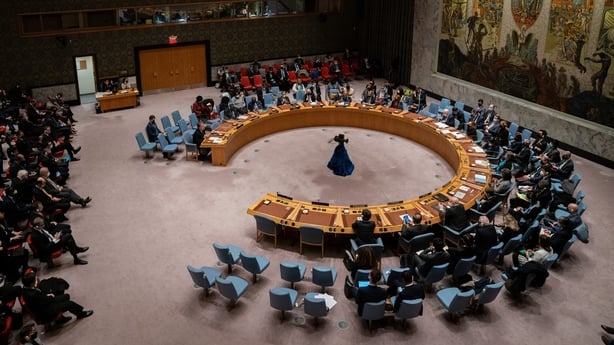Kyiv has filed an application with the International Court of Justice, accusing Russia of "planning acts of genocide in Ukraine", the Hague-based court has said.
In the application filed yesterday, Kyiv also accused Russia of "intentionally killing and inflicting serious injury on members of the Ukrainian nationality", the ICJ said in a statement.
There has been no independent corroboration of the claims.
The court procedure comes after Russian President Vladimir Putin justified the invasion by saying Ukraine was committing genocide against the country's Russian-speaking population.
He used this unfounded claim as a pretext to recognise the independence of the breakaway eastern republics of Donetsk and Lugansk and launch a full-scale invasion of his neighbour on Thursday.
Meanwhile, The United Nations Security Council voted to hold a rare emergency special session of the General Assembly to discuss Russia's attack on Ukraine.

The meeting will be convened on Monday, and is set to give all 193 members of the global body the opportunity to express their views on the invasion.
Russia voted against the resolution, but under UN regulations it did not have veto power to derail the referral of the war to the General Assembly.
The procedure is allowed under a 1950 resolution called "Uniting for Peace".
It allows for members of the Security Council to seize the General Assembly for a special session if the five permanent members - Russia, the United States, Britain, France and China - fail to agree among themselves to act together to maintain peace.
The move was sparked by Russia on Friday using its veto to block a Security Council resolution that condemned Moscow's invasion and called for the immediate withdrawal of its troops.
Only the support of nine of the council's 15 members is required to call an emergency special session of the General Assembly.
Eleven countries voted in favour. Russia opposed, while the United Arab Emirates, China and India abstained.
It will just be the 11th such session that the assembly has held, according to diplomats.

